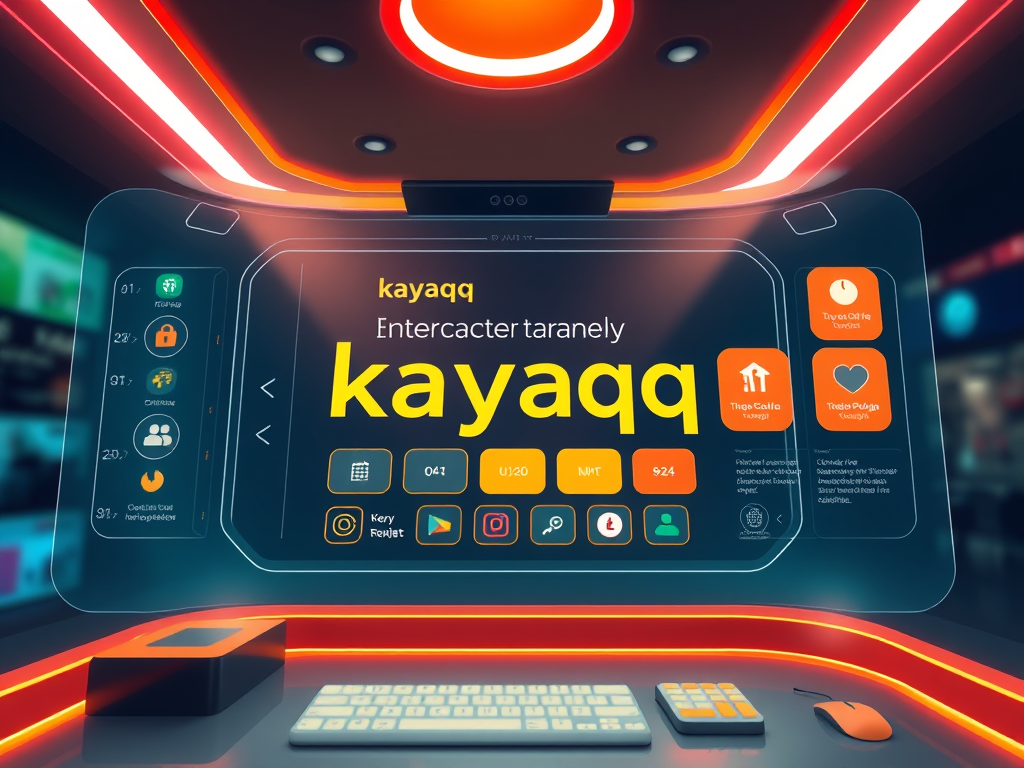KayaQQ Link Alternatif Domino 99 Win Rate Tinggi

Kayaqq link alternatif adalah akses daftar dan login situs domino 99 online yang memiliki win rate tinggi dari platform terpercaya pkv games. Salah satu agen judi qq online yang memberikan pelayanan terbaik di Indonesia dengan ribuan member aktif setiap harinya. Kaya qq domino sangat menjujung tinggi sportivitas. oleh karena itu, semua game judi kartu yang di sediakan menggunakan sistem fairplay. Apa itu fairplay? secara teknis adalah, permainan tanpa kecurangan 100% member vs member tanpa adanya bot dan admin. Dengan sistem yang adil dan transparan, pemain memiliki peluang kemenangan yang sama hingga 96%. Dan berapapun kemenangan member saat bermain dominoqq online, slot gacor dan bandarqq akan di bayar lunas.
Download Apk PKV Games di Link Alternatif KayaQQ
Ketika Anda ingin bermain judi online pkv melalui perangkat mobile baik itu Android ataupun IOS, tentu Anda membutuhkan sebuah aplikasi untuk login kedalam permainan pkvgames tersebut. oleh sebab itu, kami menyediakan link alternatif untuk download apk pkv games resmi dan akses login situs kayaqq. Pada dasarnya setiap situs penyedia aplikasi (app) selalu menyertakan panduan penggunaan aplikasi tersebut. Baik itu cara instal apk pkv pada smartphone, cara daftar kayaqq dan cara login app pkvgames. termasuk perangkat apa saja yang kompatible dengan platform tersebut berikut versinya. sehingga pengguna baru dapat dengan mudah mengikuti langkah-langkah instalasi apk pkv qq.
KayaQQ 99 Dengan Pelayanan Terbaik Online 24 Jam
Salah satu cara untuk menentukan pilihan bermain di situs judi qq online terbaik adalah mengetahui berapa banyak member yang aktif. Dengan begitu, Anda akan mengetahui review dari para pemain apakah situs pkv tersebut benar-benar aman dan terpercaya. Dari berbagai sumber media sosial seperti facebook, twitter (X), instargam dan pinterest, banyak yang memberikan ulasan bahwa kaya99 merupakan salah satu nama situs judi qq online terpercaya. Berikut ringkasan yang bisa Anda jadikan pertimbangan dan referensi mengapa harus memilih situs pkv games kayaqq sebagai alternatif daftar pkv.
| Nama Situs | KayaQQ |
| Min Deposit | Rp 15.000 |
| Metode Pembayaran | Transfer Bank, E-wallet, Pulsa |
| Kompatible | PC, Mac, Windows, Android, IOS |
| Game Unggulan | DominoQQ, BandarQ, Poker, Slot |
| Review | ⭐️⭐️⭐️⭐️⭐️ 69789 user |
Kenyamanan pelanggan adalah syarat mutlak sebagai penyedia layanan judi online. dengan begitu, member akan memberi ulasan terbaik dan merekomendasikan ke berbagai kalangan. Paham akan hal itu, situs kaya qq pkv berkomitmen untuk terus meningkatkan kualitas pelayanan agar memberikan rasa aman dan nyaman kepada semua member. Bagi pemain yang memiliki kendala baik itu saat daftar, login ataupun kendala tekhnis lainnya, bisa menghubungi costumer support kami yang online 24 jam siap membantu Anda melalui jendela live chat atau layanan vip pada kontact whatsapp official dan telegram.
Kesimpulan
Bagi Anda yang mencari situs judi qq online terpercaya dengan kualitas dan pelayanan terbaik, kayaqq link alternatif adalah salah satu pilihan yang tepat. selain berkualitas, kayaqq merupakan bagian dari jaringan platform PKV Games resmi dan terpercaya di Indonesia.
